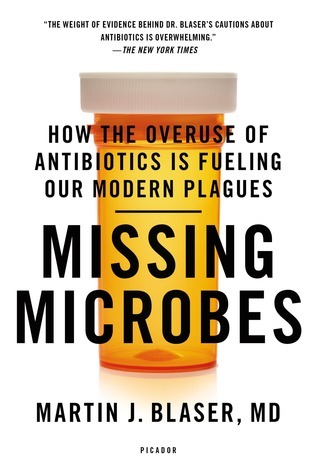What do you think?
Rate this book


289 pages, Kindle Edition
First published February 6, 2014
We talk about a pre-antibiotic era and an antibiotic era; if we're not careful, we'll soon be in a post-antibiotic era. This now is a major focus of the CDC,* and I share its concern. But I am thinking about a different concept, not only the failure of antibiotics because of resistance but also the increased susceptibility of millions because of a degraded [microbiotal] ecosystem. The two go hand in hand, but in a smaller interconnected world the second is a deluge waiting to happen and growing each day.